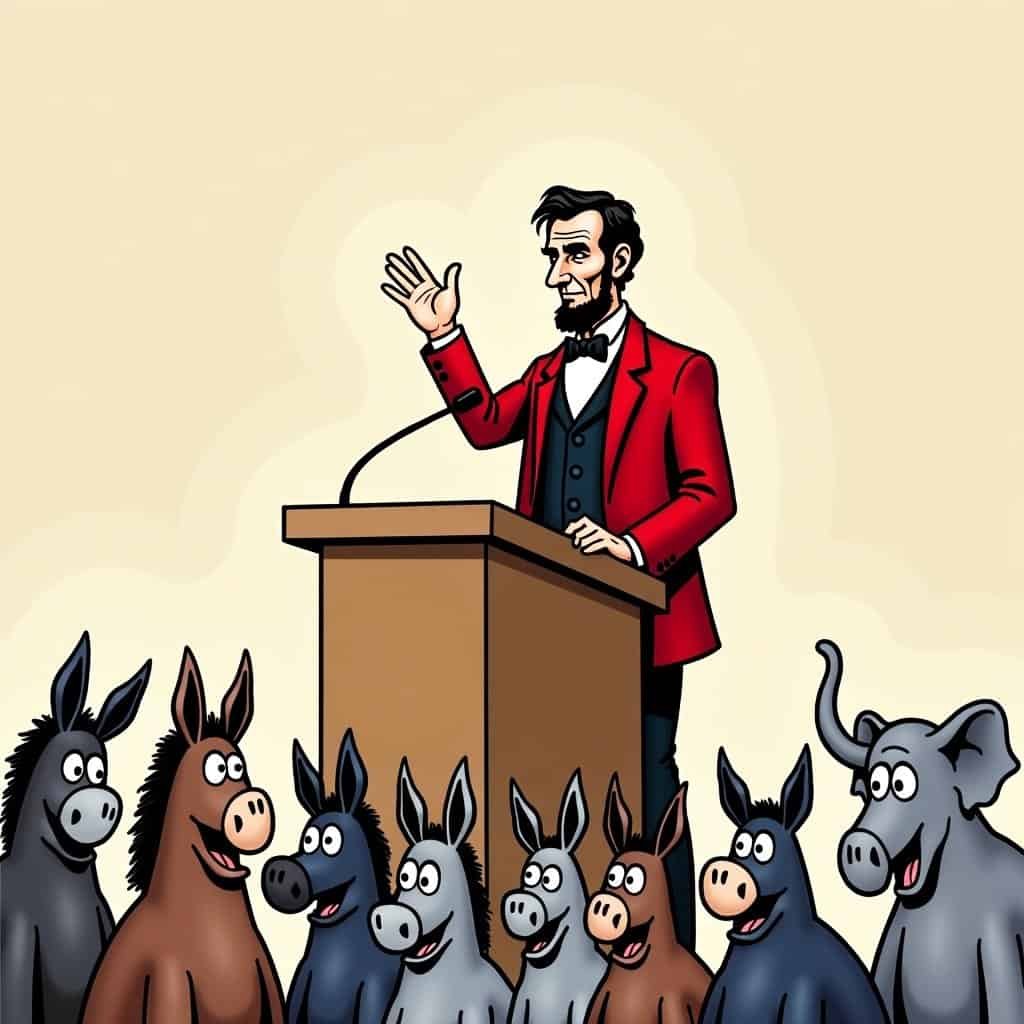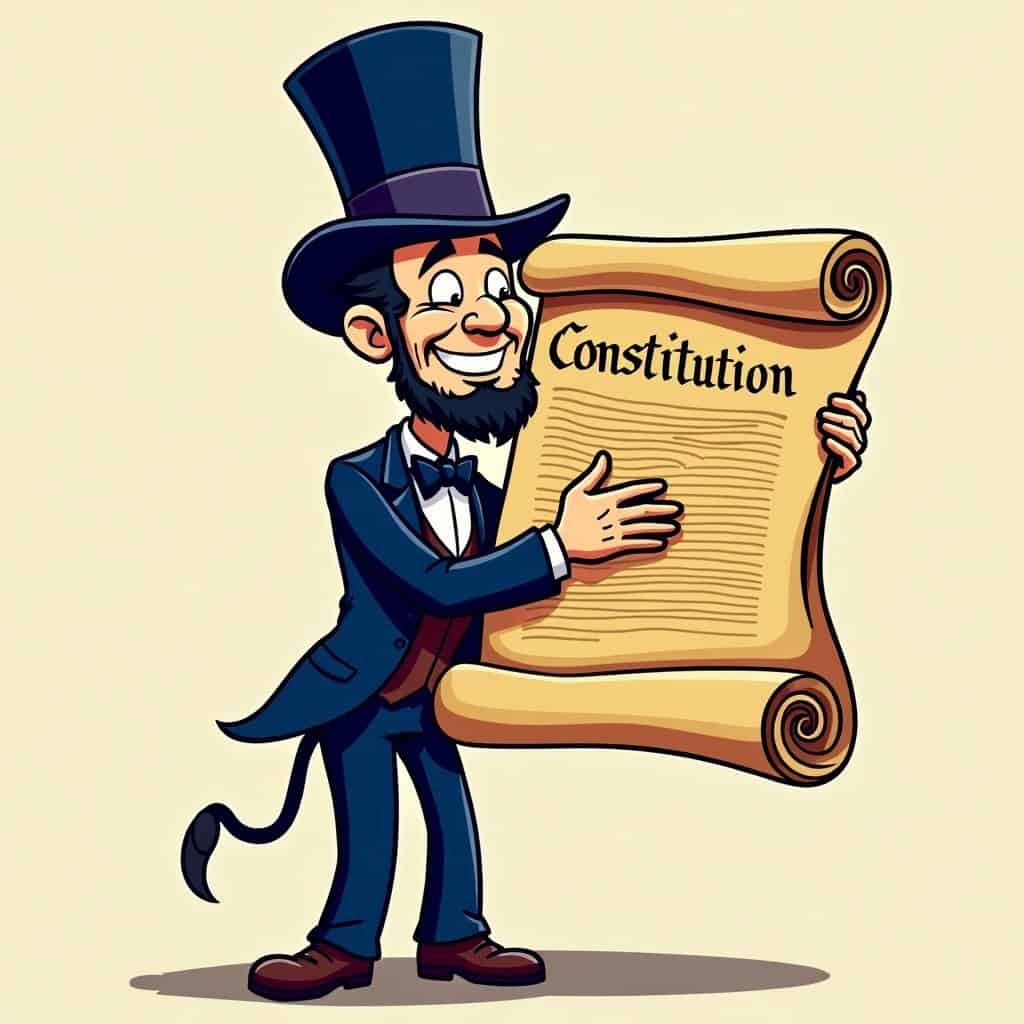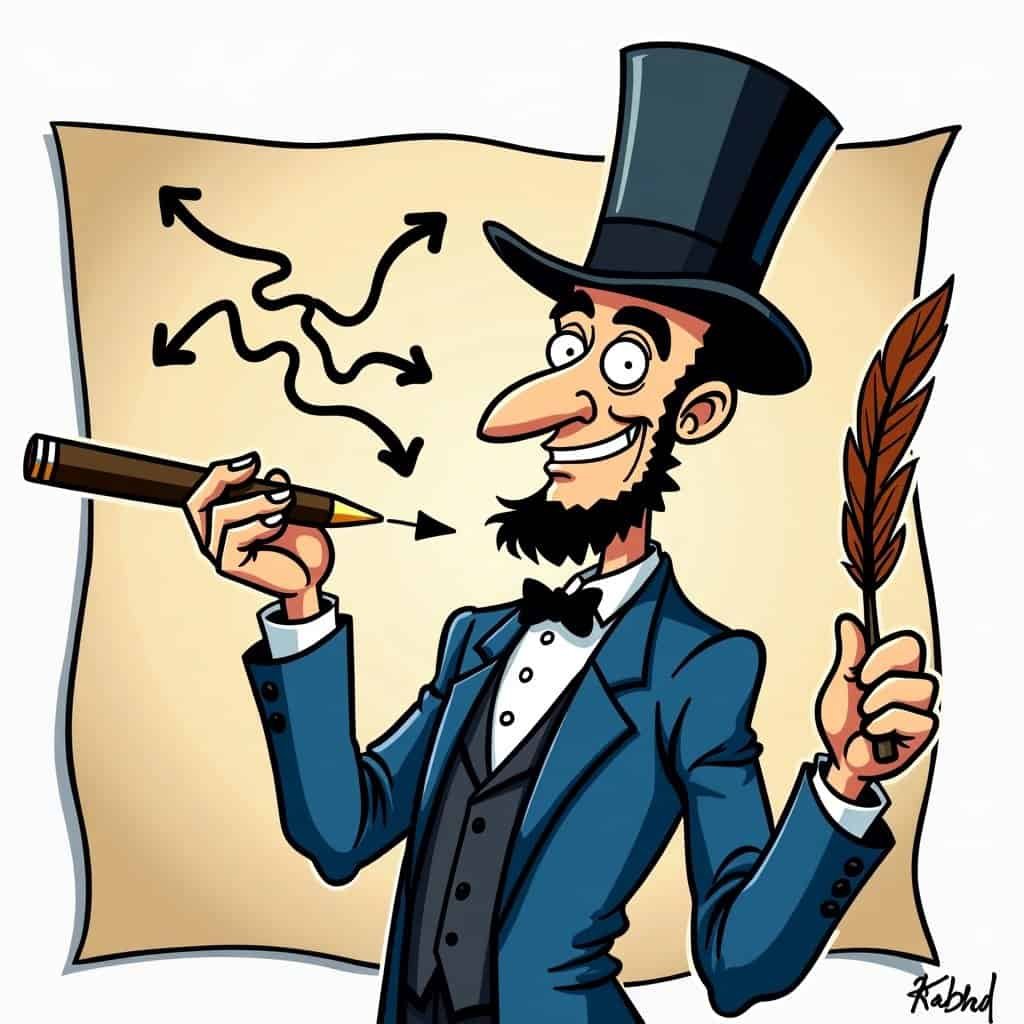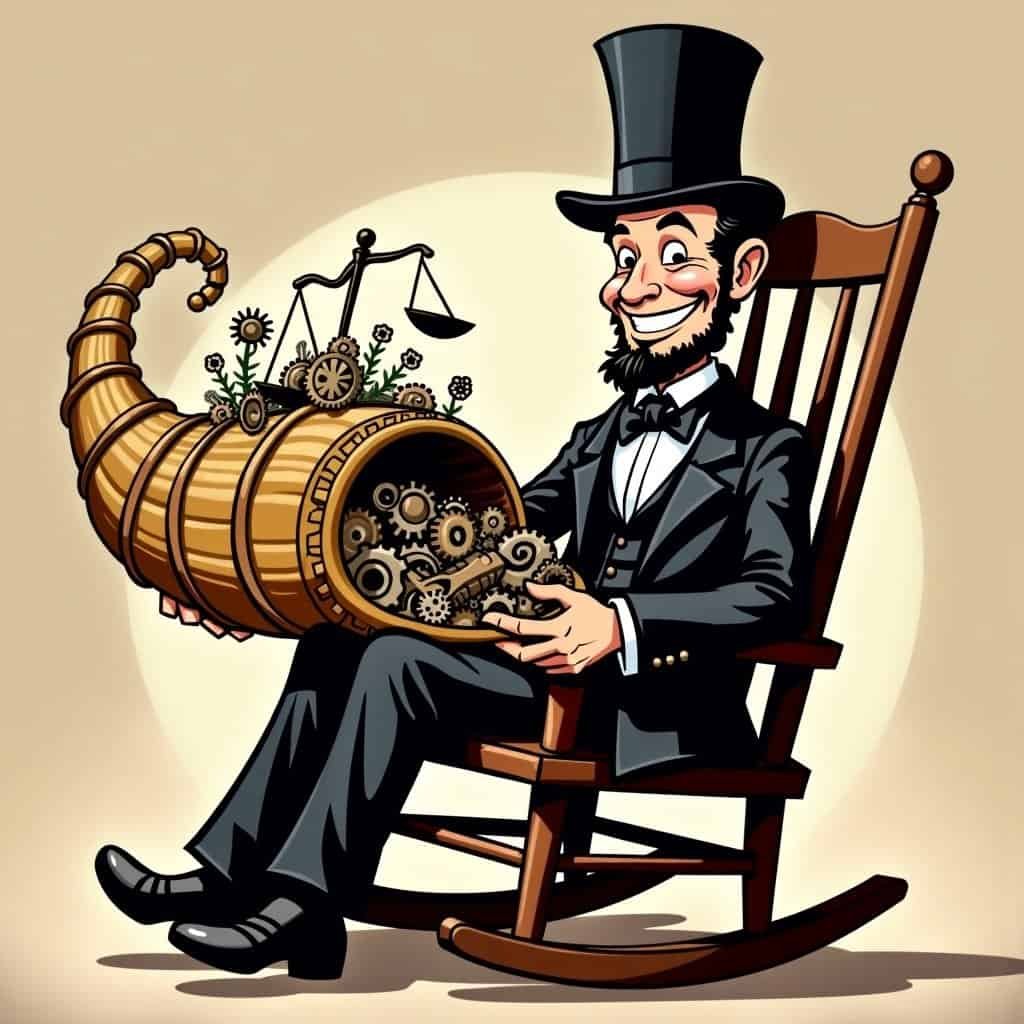There are certain moments in history that shine with the glimmer of wit, even if they weren’t quite so amusing at the time. Take, for example, the clever move known as the Emancipation Proclamation crafted by the sharp and always-calculating Abraham Lincoln. Now, honest Abe didn’t just wake up one morning, grab a cup of coffee, and decide to jot down a proclamation in a hurry. Oh no, this was a smart plan designed to not only do a moral good but also serve a tasty slice of political strategy pie.
Picture Lincoln as a chess grandmaster, looking at the board with the Union and Confederacy stuck in a tense standoff. The Emancipation Proclamation was his clever move, like a well-timed bishop capture. By declaring the freedom of slaves in Confederate states, he smartly tried to weaken the Southern economy that depended heavily on that labor. It’s a classic example of flipping the script and making the most of the available pawns, if you’ll excuse the pun.
Let’s tap into our inner conservative smarts here. The Proclamation was also a fantastic morale booster for the Union troops—much like a tax cut can pep up an economy (or at least that’s what we Right-minded folks think!) It gave them a righteous cause to get behind, beyond the political fights of the day. With this, Lincoln wasn’t just changing the rules of the game; he was redefining what winning looked like.
Strategic Timing of the Emancipation Proclamation
| Aspect | Impact |
|---|---|
| Southern Economy | Weakened labor force |
| Union Morale | Boosted with a righteous cause |
| International Opinion | Shifted in favor of the Union |
| Political Strategy | Reframed the war’s purpose |
And while the liberal progressives of the day might claim full credit for the inevitable push towards equality this Proclamation set forth, let’s not forget the perfect timing and smart thinking behind it. Much like how we Republicans fancy lower taxes as a new day for economic boom, Lincoln’s Proclamation was a dawn that lit up a path to eventual freedom for the oppressed, while cleverly strangling the enemy’s resources.
So was Lincoln’s chessboard a careful setup? You bet it was. The timing was meant to paint a bigger picture where the Union stood strong and principled, and, most importantly, it made sure to give the Union a timely advantage while sending a clear message. This—for all intents and purposes—was a clever strategy right up our alley. Just as conservatives believe in the smart power of the individuals driving the economy, Abe had faith in the idea that strategic moves paved the way for collective success.
Immediate Impact of the Emancipation Proclamation
Here we have a fascinating contrast: Lincoln’s Proclamation didn’t actually free a single slave the day it was issued. Much like a neatly packaged argument in politics, it was more about intent and signals. It slowed down the Southern war machine and invited the oppressed to start their journey North. Much like our belief in self-initiated growth rather than heavy-handed government intervention, this was the start, not the finish, of freedom.
As conservatives who pride ourselves on crafting solid strategies with good-natured humor, the Proclamation’s clever timing and execution echo our core values: precision, timing, and the unwavering belief that a well-thought-out move can chart the course for a brighter, more prosperous tomorrow. So let’s tip our hats to old Abe—our kind of conservative hero doing the right thing with smarts and style!






